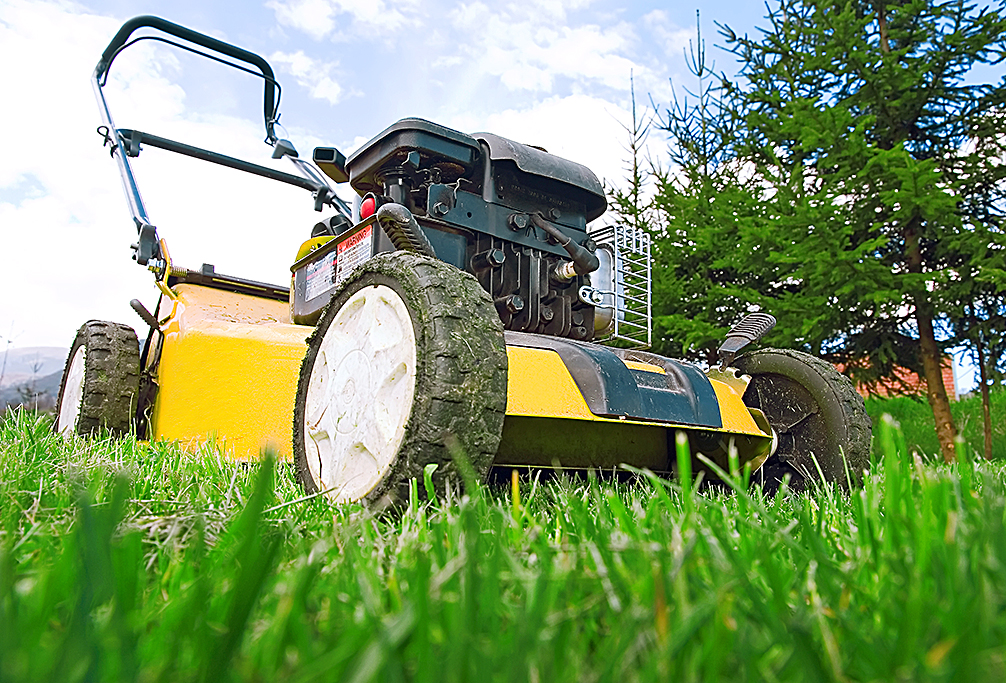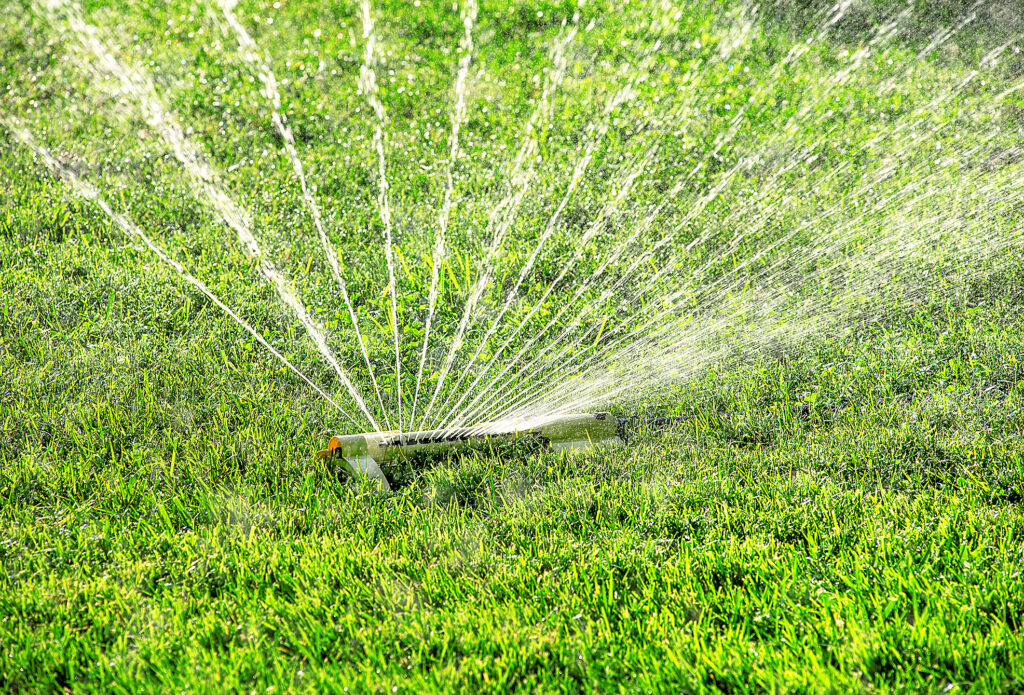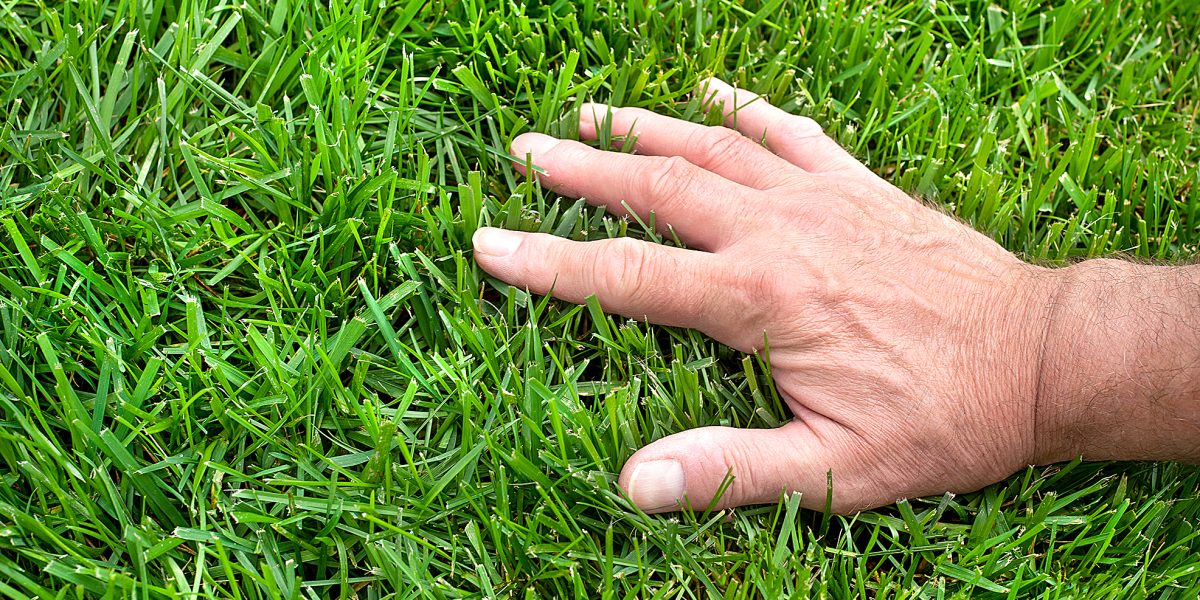The best way to reduce using pesticides on your lawn is making it healthier. Pesticides, including anything used to ward off insects, unwanted weeds, or disease, are needed when our lawns aren’t strong and healthy enough to fight for themselves. Proper care and maintenance will reduce the need for pesticides and your lawn will love you for it.

Mowing
Mowing is one of the ways you can boost the health of grass and it’s something you’re already doing! A few minor adjustments to your mowing routine will improve your lawn in no time.
Check your mower blades to make sure they are sharp. Ragged edges and tearing can be stressful for the grass blades.
Mulch your grass clippings into the lawn instead of bagging them. They provide nutrients and help retain moisture.
Don’t cut it too short. Aim to remove only the top third of the grass with every mowing session. This will encourage root growth and drought tolerance. It will also deter weeds from growing.
Check your mower blades to make sure they are sharp. Ragged edges and tearing can be stressful for the grass blades.
Mulch your grass clippings into the lawn instead of bagging them. They provide nutrients and help retain moisture.
Don’t cut it too short. Aim to remove only the top third of the grass with every mowing session. This will encourage root growth and drought tolerance. It will also deter weeds from growing.

Watering
Check your watering schedule and modify if needed. You should be watering deeply and less frequently. Proper watering will encourage a strong root system. In turn, a well-watered lawn will absorb more nutrients, making it lusher and denser.
Water your lawn in the morning to prevent evaporation and disease. Many lawn diseases are the result of poor water management.
Keep watering on a timer. Checking your irrigation settings or using a hose timer are great ways to monitor your watering to make sure you are providing ample water without over doing it.
Water your lawn in the morning to prevent evaporation and disease. Many lawn diseases are the result of poor water management.
Keep watering on a timer. Checking your irrigation settings or using a hose timer are great ways to monitor your watering to make sure you are providing ample water without over doing it.
With basic watering and mowing tips sorted out, check out a few more ideas to reduce pesticide use once and for all.
- Aeration can help rejuvenate your grass by allowing it to breathe while reducing compaction. Timing is key with this step, so check out references to your local area to be sure you are doing this at the proper time of year.
- Encourage beneficial insects and animals to control the troublesome ones. Pest management via mother nature. Limit your use of insecticides to encourage the good bugs.
- Call in an expert. Reach out to a local extension office or lawn care service to ask for suggestions on how to make your lawn healthier without chemical intervention.
Try a few of these suggestions out. You may find that just a small adjustment to your lawn care routine will have a significant impact on the overall health of your lawn.







